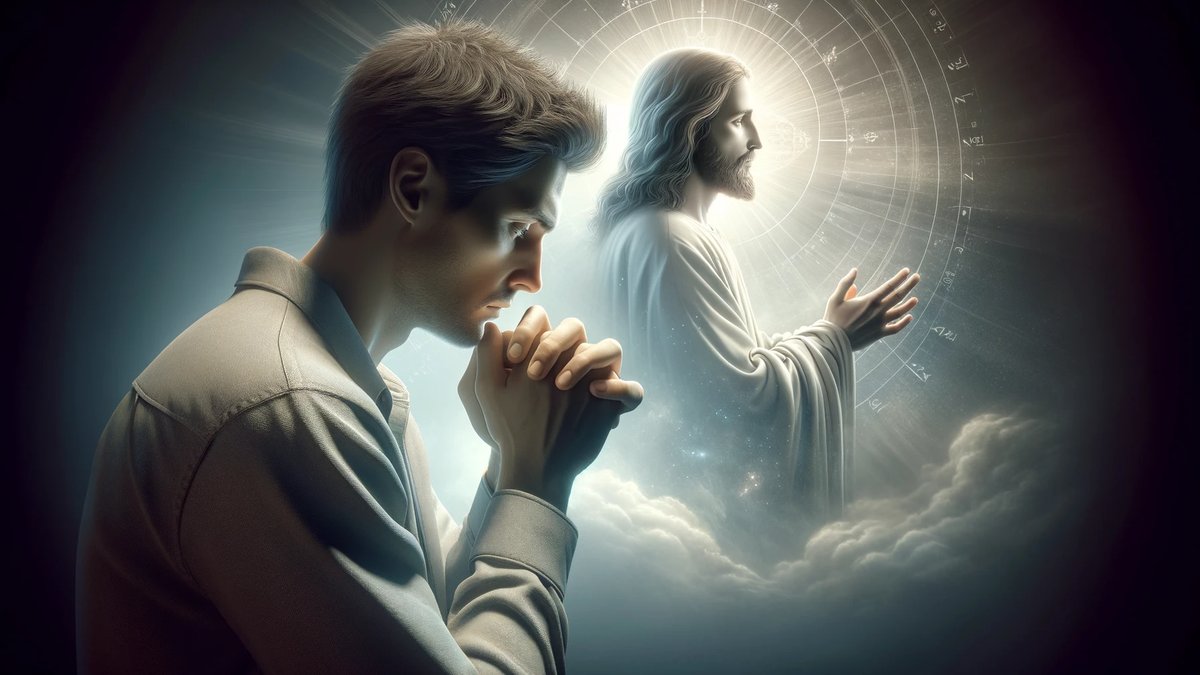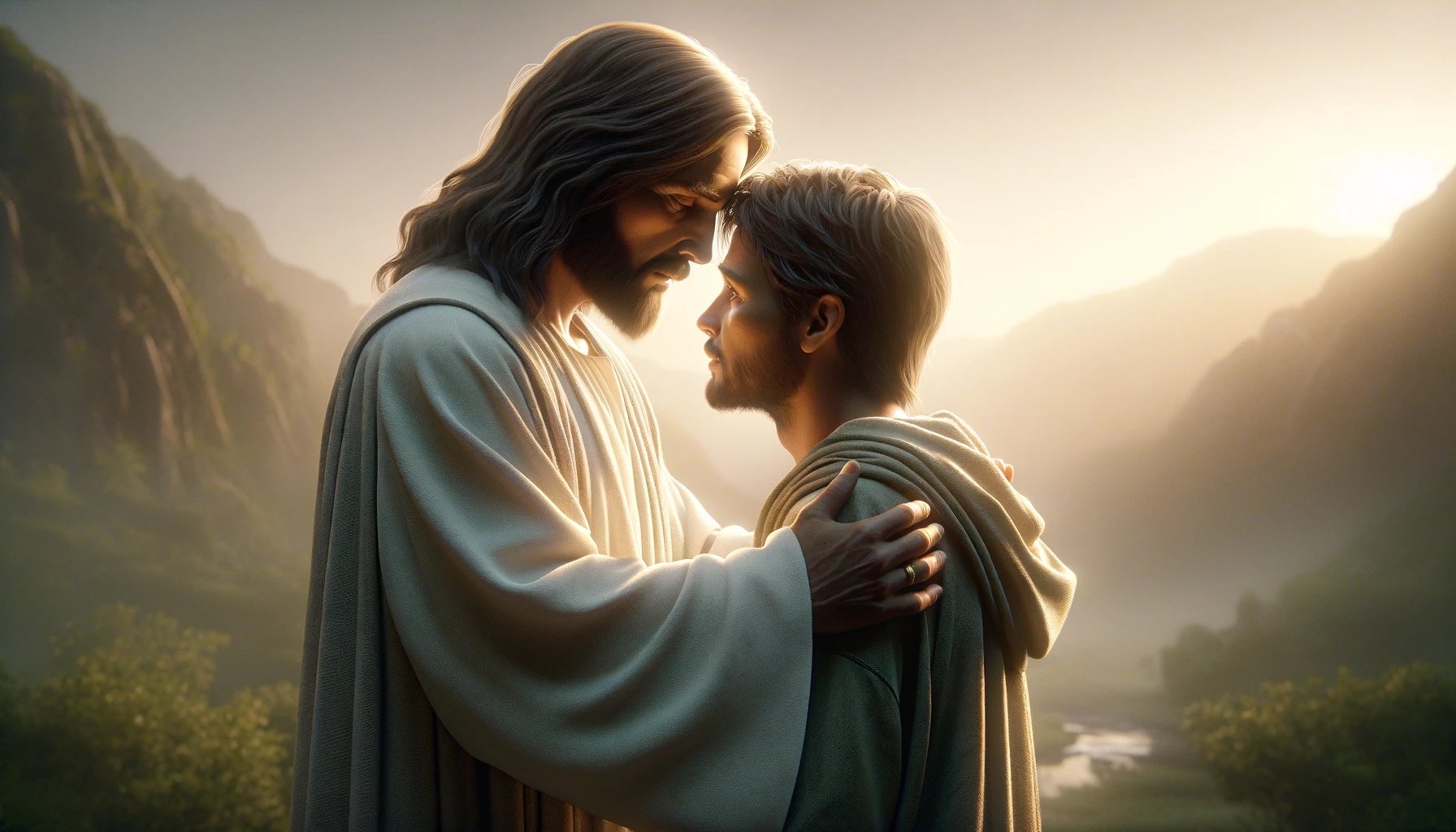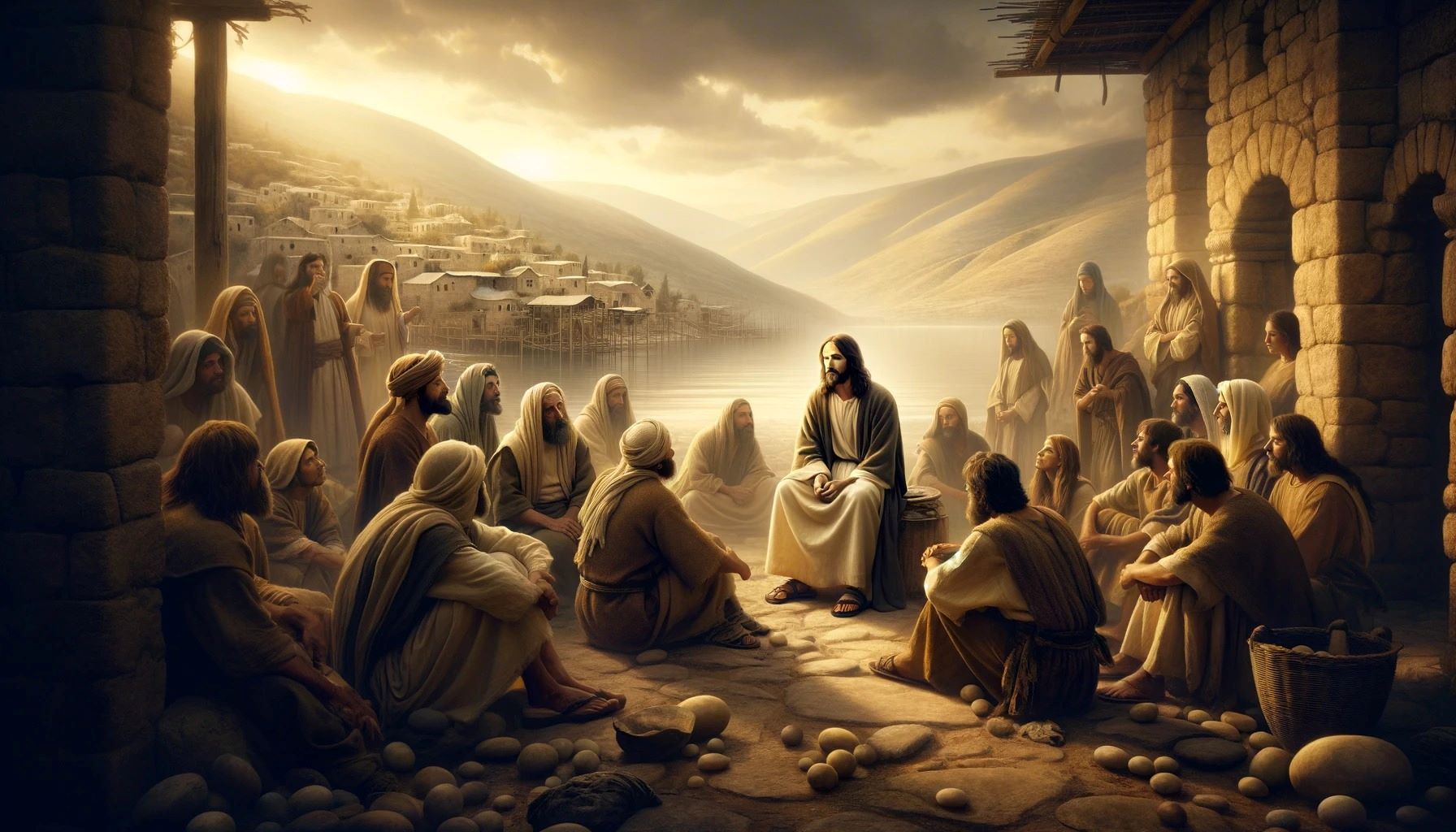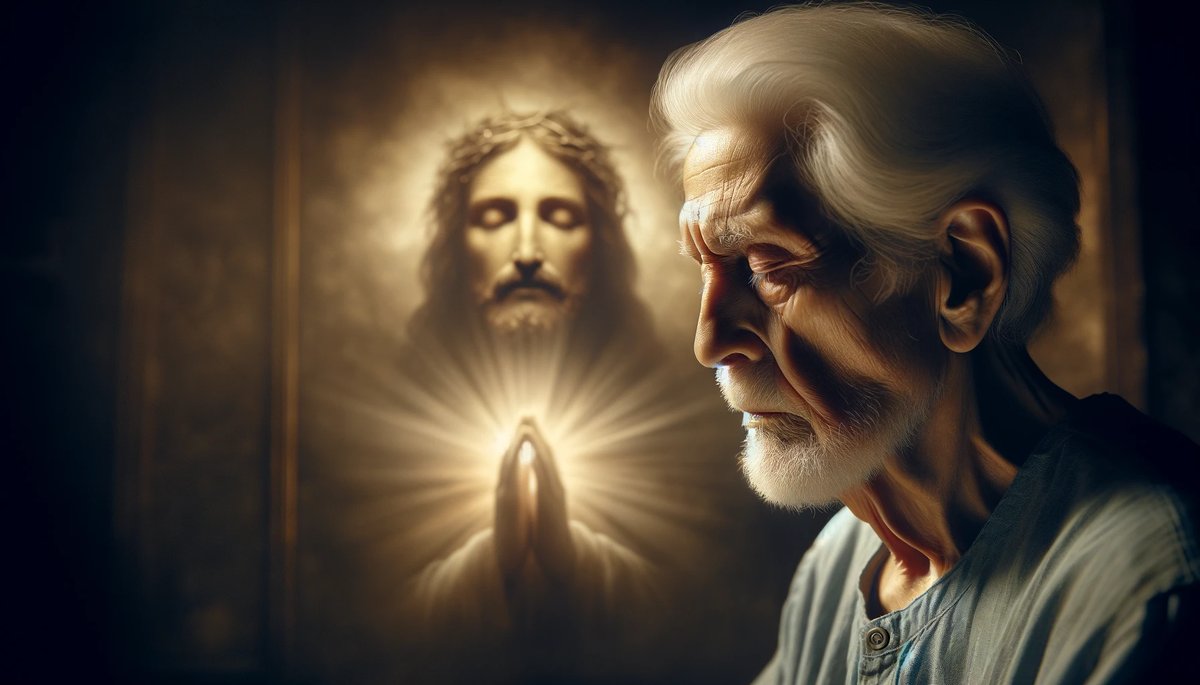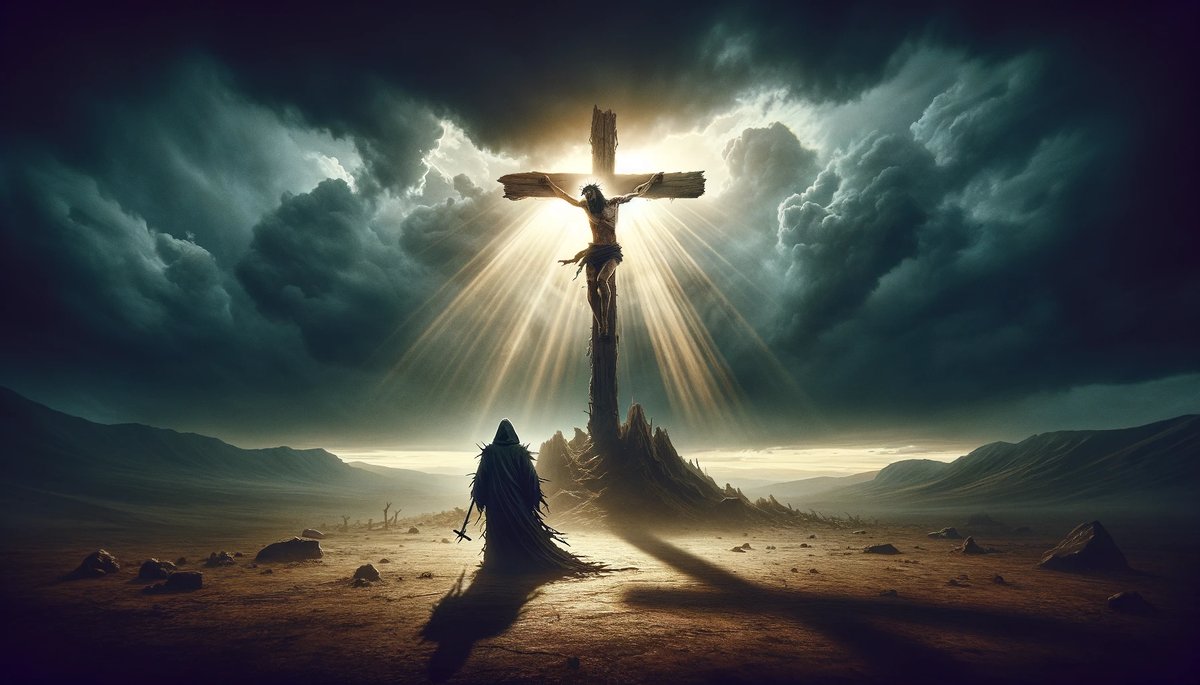Home>Christian Videos>Bible Stories>How Was Jesus Christ Conceived
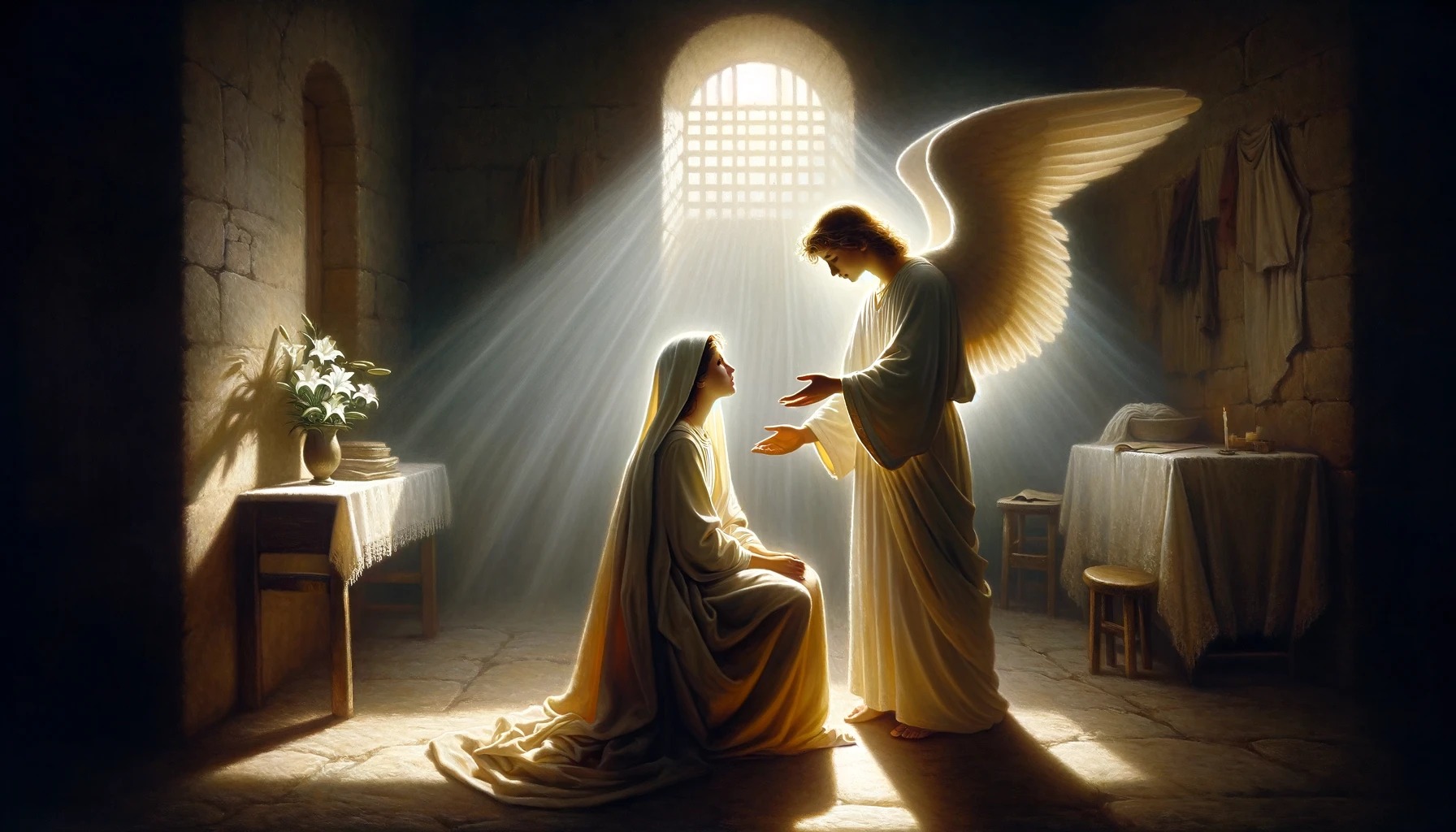

Bible Stories
How Was Jesus Christ Conceived
Published: February 29, 2024
Ericka Andersen, an editor at Christian.net, expertly merges digital strategy with content creation, focusing on faith and societal issues. Her communication skills enhance the platform's engaging narratives, fostering meaningful dialogue on belief's impact on society.
Discover the biblical account of Jesus Christ's conception and birth. Explore the miraculous story and its significance in the Bible. Learn more about this and other Bible stories.
(Many of the links in this article redirect to a specific reviewed product. Your purchase of these products through affiliate links helps to generate commission for Christian.net, at no extra cost. Learn more)
Table of Contents
The Divine Conception of Jesus Christ
The divine conception of Jesus Christ refers to the belief that Jesus was conceived by the Holy Spirit and born of the Virgin Mary. This miraculous event is a central tenet of Christian faith and is foundational to the belief in Jesus as the Son of God. According to the Gospel of Matthew and the Gospel of Luke in the New Testament, Mary, a young virgin, was visited by the angel Gabriel who announced to her that she would conceive a child by the power of the Holy Spirit. This divine conception is a fundamental aspect of the Christian understanding of Jesus' nature and mission on earth. It is a profound mystery that speaks to the unique and extraordinary nature of Jesus as both fully human and fully divine.
-
The Annunciation: The divine conception of Jesus Christ is initiated by the angel Gabriel's visit to Mary, where he delivers the message that she will conceive a child by the power of the Holy Spirit. This moment, known as the Annunciation, is a pivotal event in Christian theology as it marks the beginning of the incarnation of Jesus Christ.
-
The Role of Mary: Mary's willing acceptance of this divine plan is also integral to the divine conception. Her response, "Let it be to me according to your word," demonstrates her faith and obedience to the will of God. In Christian tradition, Mary is revered for her role as the mother of Jesus and her submission to God's divine purpose.
-
The Incarnation: The divine conception of Jesus Christ is inseparable from the doctrine of the Incarnation, which teaches that the eternal Son of God took on human flesh and became fully human while retaining His full divinity. This union of the divine and human natures in the person of Jesus is a central doctrine of Christianity.
-
The Fulfillment of Prophecy: The divine conception of Jesus Christ is also seen as the fulfillment of Old Testament prophecies, particularly the prophecy in Isaiah 7:14 which foretold the virgin birth of the Messiah. This connection to the prophetic tradition underscores the significance of Jesus' conception in the larger narrative of God's redemptive plan for humanity.
The divine conception of Jesus Christ is a foundational belief that underscores the miraculous nature of Jesus' birth and the profound significance of His identity as the Son of God. It is a cornerstone of Christian faith and serves as a testament to the extraordinary ways in which God works in the world to bring about salvation and redemption.
Read more: How Tall Was Jesus Christ
The Role of the Holy Spirit in the Conception of Jesus
-
Divine Intervention: The conception of Jesus Christ is a miraculous event attributed to the direct intervention of the Holy Spirit. In the Gospel of Luke, the angel Gabriel declares to Mary, "The Holy Spirit will come upon you, and the power of the Most High will overshadow you" (Luke 1:35). This divine overshadowing by the Holy Spirit signifies the supernatural nature of Jesus' conception, emphasizing that it transcends the natural order and is a result of God's divine action.
-
The Third Person of the Trinity: In Christian theology, the Holy Spirit is recognized as the third person of the Trinity, along with God the Father and God the Son. The role of the Holy Spirit in the conception of Jesus underscores the cooperative work of the Trinity in the redemptive plan of God. The Holy Spirit's involvement in the incarnation of Jesus demonstrates the unity and harmony within the Godhead in bringing about the salvation of humanity.
-
The Fulfillment of God's Promise: The Holy Spirit's role in the conception of Jesus aligns with the fulfillment of God's promise to send a Savior to redeem humanity. The divine conception signifies the initiation of God's redemptive mission, and the Holy Spirit's active involvement in this process highlights the divine orchestration of salvation history. It reflects God's faithfulness to His covenant and His unwavering commitment to reconcile humanity to Himself.
-
The Sanctification of Jesus: The Holy Spirit's role in the conception of Jesus also carries a profound theological significance in terms of Jesus' holiness and purity. By the Holy Spirit's overshadowing, Jesus is set apart as the sinless Son of God, free from the stain of original sin. This sanctifying work of the Holy Spirit prepares Jesus to fulfill His mission as the perfect and spotless Lamb of God, who would offer Himself as a sacrifice for the atonement of humanity's sins.
-
The Continuation of the Holy Spirit's Work: The Holy Spirit's involvement in the conception of Jesus foreshadows His ongoing ministry in the life of believers. Just as the Holy Spirit played a pivotal role in the incarnation of Jesus, He continues to work in the lives of Christians, empowering them for service, guiding them into truth, and bearing witness to the redemptive work of Christ. The divine conception of Jesus thus serves as a precursor to the outpouring of the Holy Spirit at Pentecost and the subsequent indwelling of believers.
The role of the Holy Spirit in the conception of Jesus is a testament to the divine agency at work in the incarnation of the Son of God. It underscores the supernatural nature of Jesus' birth and the integral part played by the Holy Spirit in bringing about the fulfillment of God's redemptive plan.
The Virgin Birth: A Miracle Beyond Human Understanding
The virgin birth of Jesus Christ stands as a profound and inexplicable miracle that transcends human comprehension. This extraordinary event, as described in the Gospels of Matthew and Luke, defies the natural order of conception and birth, as it occurred without the involvement of a human father. The concept of a virgin conceiving a child challenges the boundaries of human understanding and rational explanation, leading to the recognition of this miraculous occurrence as a testament to the divine power and sovereignty of God. The virgin birth of Jesus serves as a pivotal demonstration of God's ability to work beyond the limitations of the physical world, affirming His authority over the laws of nature and His capacity to bring about the extraordinary for the fulfillment of His redemptive purposes.
The Unprecedented Nature of the Virgin Birth
The virgin birth of Jesus Christ represents an unprecedented and unparalleled event in human history. It stands as the only instance of a virgin conceiving and giving birth to a child, particularly one who is recognized as the Son of God. This singular occurrence defies the established norms of human reproduction and challenges the scientific understanding of conception, emphasizing the supernatural and divine origin of Jesus' birth. The unparalleled nature of the virgin birth underscores its exceptional status as a miraculous sign of God's intervention in the course of human affairs.
The Significance of Mary's Virginity
Mary's virginity at the time of Jesus' conception holds profound theological significance in the Christian faith. The absence of a human father in the conception of Jesus emphasizes the purity and holiness of His origin, affirming His identity as the sinless Son of God. Mary's virginity underscores the miraculous nature of Jesus' birth and serves as a symbol of the divine initiative in bringing forth the Savior. This unique aspect of the virgin birth highlights the extraordinary manner in which God chose to enter into human history, emphasizing the sacred and transcendent nature of Jesus' incarnation.
Read more: How To Worship Jesus Christ
The Divine Purpose of the Virgin Birth
The virgin birth of Jesus Christ serves as a foundational element in the fulfillment of God's redemptive plan for humanity. It signifies the direct intervention of God in initiating the incarnation of His Son, who would ultimately offer Himself as the atoning sacrifice for the sins of the world. The miraculous nature of Jesus' birth underscores the divine initiative in providing a Savior who is both fully human and fully divine, capable of reconciling humanity to God. The virgin birth thus points to the extraordinary lengths to which God was willing to go in order to bring about the salvation of humanity, demonstrating His unfathomable love and grace.
The Mystery and Wonder of the Virgin Birth
The virgin birth of Jesus Christ remains shrouded in mystery and wonder, evoking awe and reverence for the miraculous workings of God. It defies rational explanation and invites contemplation on the unfathomable ways of the divine. The incomprehensible nature of the virgin birth serves to inspire faith and humility, prompting individuals to acknowledge the limitations of human understanding in the face of God's transcendent power. The mystery of the virgin birth invites believers to approach this miraculous event with a sense of wonder and reverence, recognizing it as a profound manifestation of God's incomparable wisdom and sovereignty.
The virgin birth of Jesus Christ stands as a miraculous testament to the extraordinary workings of God, defying human understanding and inviting contemplation on the divine mysteries. It serves as a foundational belief in Christian theology, emphasizing the supernatural and transcendent nature of Jesus' incarnation as the Son of God.
The Prophecies and Fulfillment of Jesus' Conception
-
The Prophetic Foretelling: The conception of Jesus Christ aligns with the fulfillment of ancient prophecies recorded in the Old Testament. The prophecy in Isaiah 7:14 specifically anticipates the miraculous birth of a child to a virgin, signifying a profound and unprecedented event that would serve as a divine sign. This prophecy, uttered centuries before the birth of Jesus, establishes a clear anticipation of the extraordinary manner in which the Messiah would enter the world. The fulfillment of this prophecy through the virgin birth of Jesus underscores the divine orchestration of events in accordance with the predetermined plan of God.
-
The Significance of Prophecy: The fulfillment of the prophecy regarding Jesus' conception holds immense theological significance in Christian belief. It serves as a demonstration of God's faithfulness to His promises and His sovereign control over the course of human history. The alignment of Jesus' conception with the prophetic utterances of the Old Testament emphasizes the continuity and coherence of God's redemptive plan, spanning across generations and culminating in the arrival of the long-awaited Messiah. The fulfillment of prophecy in Jesus' conception serves to authenticate His identity as the fulfillment of divine promises and the embodiment of God's redemptive purposes.
-
The Divine Timing and Precision: The fulfillment of prophecies related to Jesus' conception highlights the meticulous timing and precision of God's plan. The convergence of historical events, prophetic utterances, and the miraculous conception of Jesus underscores the divine orchestration at work in bringing about the incarnation of the Son of God. The fulfillment of prophecies concerning Jesus' conception serves as a testament to the divine wisdom and providential oversight that governs the unfolding of God's redemptive mission. It reinforces the conviction that Jesus' birth was not a random occurrence, but a meticulously planned and purposeful event ordained by God from the foundation of the world.
-
The Continuity of God's Revelation: The fulfillment of prophecies related to Jesus' conception also underscores the continuity of God's revelation and His consistent communication with humanity. The alignment of Jesus' birth with the prophetic declarations of the Old Testament serves to affirm the interconnectedness of God's redemptive narrative, spanning from the anticipation of the Messiah in ancient prophecies to His manifestation in the person of Jesus Christ. This continuity of revelation reinforces the divine coherence and unity of God's salvific plan, emphasizing the seamless integration of Jesus' conception into the broader tapestry of God's redemptive work.
-
The Confirmation of Jesus' Messianic Identity: The fulfillment of prophecies concerning Jesus' conception provides compelling evidence of His messianic identity and the authenticity of His divine mission. The alignment of Jesus' birth with the prophetic pronouncements of the Old Testament serves as a powerful confirmation of His role as the long-awaited Messiah, the Savior foretold by the prophets. The fulfillment of these prophecies bolsters the credibility of Jesus' claims and establishes a solid foundation for the Christian faith, affirming His unique status as the fulfillment of God's redemptive promises and the embodiment of divine truth.
The prophecies and their fulfillment in Jesus' conception serve as a compelling testament to the divine orchestration of history and the fulfillment of God's redemptive plan through the miraculous birth of the Savior.
The Significance of Jesus' Conception in Christian Theology
The significance of Jesus' conception in Christian theology extends to the core of the Christian faith, shaping foundational beliefs and doctrines that underpin the understanding of Jesus as the Son of God and the Savior of humanity. The divine conception of Jesus Christ holds profound theological implications that reverberate throughout Christian thought and practice, informing the understanding of Jesus' nature, mission, and redemptive work.
Read more: How Was Jesus Christ Betrayed
The Incarnation of the Son of God
The conception of Jesus Christ through the power of the Holy Spirit and the Virgin Mary signifies the incarnation of the eternal Son of God. This pivotal event embodies the divine mystery of God taking on human flesh, as articulated in the doctrine of the Incarnation. The union of the divine and human natures in the person of Jesus Christ is a central tenet of Christian theology, emphasizing the profound truth that Jesus is fully God and fully human. His conception serves as the gateway to His earthly ministry, demonstrating the divine initiative in entering into the human experience to bring about salvation and reconciliation.
The Sinless Nature of Jesus
The virgin birth of Jesus underscores His sinless nature and purity, free from the stain of original sin. In Christian theology, Jesus' conception without the involvement of a human father signifies His unique holiness and innocence, positioning Him as the unblemished Lamb of God who would offer Himself as a perfect sacrifice for the atonement of humanity's sins. The sinless nature of Jesus, rooted in His miraculous conception, holds profound implications for the Christian understanding of salvation and the redemptive efficacy of His sacrificial death on the cross.
The Fulfillment of Messianic Prophecy
The conception of Jesus Christ fulfills the messianic prophecies recorded in the Old Testament, particularly the prophecy in Isaiah 7:14 foretelling the virgin birth of the Messiah. This fulfillment serves as a powerful validation of Jesus' identity as the long-awaited Savior and the fulfillment of God's promises to His people. The alignment of Jesus' conception with the prophetic utterances of the Old Testament underscores the continuity and coherence of God's redemptive plan, establishing Jesus as the culmination of divine revelation and the embodiment of God's salvific purposes.
The Mediator between God and Humanity
Jesus' conception holds significance in Christian theology as it establishes Him as the mediator between God and humanity. His unique dual nature as fully divine and fully human enables Him to bridge the gap between the transcendent God and fallen humanity, serving as the reconciling figure who brings about the restoration of the broken relationship between God and humankind. The miraculous conception of Jesus underscores His capacity to serve as the perfect mediator, uniquely qualified to represent both God and humanity in the divine drama of redemption.
Read more: How Strong Is Jesus Christ
The Foundation of Christian Hope
The conception of Jesus Christ serves as the foundation of Christian hope, offering believers the assurance of God's redemptive presence and His unfailing commitment to bring about salvation. The miraculous nature of Jesus' conception underscores the extraordinary lengths to which God was willing to go in order to reconcile humanity to Himself, instilling hope in the transformative power of God's grace and the promise of eternal life through faith in Jesus Christ. The significance of Jesus' conception in Christian theology thus becomes a source of enduring hope and confidence in the ultimate triumph of God's redemptive plan.
The significance of Jesus' conception in Christian theology permeates the core of Christian belief, shaping the understanding of Jesus as the divine Son of God and the embodiment of God's redemptive purposes. It serves as a foundational truth that undergirds the Christian faith, offering profound insights into the nature of God's salvific work and the transformative impact of Jesus' life, death, and resurrection.




